I
Guénon, Voegelin, and the Modern Crisis.
The concupiscent subject’s response to the Siren Song of the ecumene, to conquer and possess it, qualifies as Voegelin’s privative exodus in at least two senses. Pragmatically, the conqueror in going forth leaves home; he generally leaves it, moreover, with the cream of the young men and a significant portion of the collective wealth in the forms of his provisions and armaments. Very likely he leaves behind him a vacuum of confusion, and a fat opportunity for mischief. Philosophically or metaphysically, the conqueror in going forth demonstratively exempts himself from the wisdom that, like his homeland, he leaves behind; under the pomp and color of his banners he declares himself the heroic prime mover of reality, a gesture of hubris in the highest degree. For in declaring himself such, he declares nothing less than the abolition of reality, as though it were his prerogative to guarantee what is possible and what is not and so to make patent his success before it occurs. Homer knew this at the beginning of the polis civilization. Agamemnon goes forth to conquer but brings about only the reduction to rubble of the heroic world, including his own murdered corpse; Odysseus, involuntarily alienated from home, struggles back to his native ground to purge his household of uninvited mischief-makers. One sign of the rebellion against reality by the conquistadors of the Ecumenic Age, which entails the abolition of actually existing “concrete societies,” is their insistence on auto-apotheosis, as when Seleucus or Demetrius or Menander identifies himself on his coinage with Helios Aniketos, “The Unvanquished Sun,” or the equivalent. To paraphrase Voegelin: The ecumene is not only a graveyard of societies, but it is also a graveyard of the Helioi Aniketoi; and thus, amid the debris left by their late passage, of the innumerable victims of those self-appointed saviors.

René Guénon as a young man.
In its dumb absurdity, the myriad of tombs affirms the structure of reality against concupiscential insouciance by pointing back to the violated wisdom as its cause. Guénon in Spiritual Authority puts it this way: “All that is, in whatever mode it may be, necessarily participates in universal principles, and nothing exists except by participating in these principles, which are eternal and immutable essences contained in the permanent actuality of the divine Intellect; consequently, one can say that all things, however contingent they may be in themselves, express or represent these principles in their own manner and according to their own order of existence, for other wise they would only be a pure nothingness.”1 Voegelin would recognize in Guénon’s balanced phrases one of the essential differentiations of consciousness with which his Order and History is concerned.2 The concupiscential campaigner can begin in only one way, by blanking out the knowledge of his own contingency; and if anyone should remind him of his contingency, he must blank out that person. He would not be stymied, or as he sees it, victimized.
Voegelin argues generally that differentiations of consciousness are irreversible, that they remain available after they occur; but he admits into his theory the concession that “diremptions” and “derailments” can also prevail during which the old symbols of wisdom no longer effectively signify and new symbols have not yet achieved full articulation. When Christianity emerges against the background of meaningless imperial succession, for example, it includes in its peculiar differentiations all the previous differentiations achieved in revelation and philosophy, from Moses to Plato. Nevertheless between the decline of philosophy and the consolidation of Christianity, there falls a long, anxiety-ridden stretch of ad hoc syncretism, thaumaturgy, theurgy, Gnosticism, orgiastic enthusiasm, Superman-ism, and general disorientation. The mental disorder of such things is the spiritual counterpart of the destruction of concrete societies under the ecumenic empires. People can for a time repudiate or lose touch with the luminous articulations that, formerly, reconciled them to reality; they either die off or recover something of clairvoyance. It happens that in The Ecumenic Age, Voegelin repeatedly references one of the earliest of the Western, reality-reconciling articulations, the one in respect of which the “Saviors” of the Ecumenic wars behaved with conspicuous heedlessness. Anaximander (610 – 546 BC, a contemporary of the Buddha) wrote: “The origin (arche) of things is the Apeiron … It is necessary for things to perish into that from which they were born; for they pay one another penalty for their injustice (adikia) according to the ordinance of Time.” Whether it is the Kshatriyas repudiating the Brahmins or Alexander repudiating Aristotle – payment of the Anximandrian “penalty” falls due and the interest on the debt begins to build up.

Eric Voegelin (1901 – 1985)
Both Guénon in Spiritual Authority and Voegelin in The Ecumenic Age take care to avoid topicality. Guénon writes of his intention “to remain exclusively in the domain of principles, which allows us to remain aloof from all those discussions, polemics, and quarrels of school or party in which we have no wish to be involved, directly or indirectly, in any way or to any degree.” In Voegelin’s terminology, Guénon’s authorship, at least where it concerns Spiritual Authority, corresponds to the positive exodus by which the man in search of wisdom withdraws in contemplation from the endless pragmatic exodus of the ecumene. Guénon adds, however, that “we leave everyone free to draw from these conclusions whatever application may be deemed suitable for particular cases.” Voegelin is less strict than Guénon in this respect, but in The Ecumenic Age he does mainly isolate his topical asides in his introductory and concluding chapters. These asides are nevertheless provocative, wherever they occur in the text. One of them will be sufficient to indicate the meaning of the Bactrian episode, which occupies the structural center of The Ecumenic Age, with respect to the modern crisis. We have previously cited Voegelin’s remark on “the games by which the power-self makes itself the fictitious master of history.” In a brief continuation of the same remark, Voegelin adds that those games “are still played today.”
It will undoubtedly have impressed those who have followed the argument so far that, simply at the level of descriptive phraseology, many of Guénon’s constructions and Voegelin’s suggest their own application to the contemporary state of affairs in the incipient Twenty-First Century. Guénon in Spiritual Authority mentions the origins of étatisme, with its relentless centralization of political power, in Fourteenth Century France. Voegelin in The Ecumenic Age refers to the ecumenic empires as “organizational shells that will expand indefinitely to engulf former concrete societies.” The centripetal and centrifugal movements might seem opposite to one another and therefore non-compossible, but they are in fact simultaneous and complementary. They describe in structural terms the libidinous process by which the bearers of “moral apocalypse” – that is, the Gnostic reformers of society – progressively obliterate the concrete societies that come under their imperial-entrepreneurial sway. Whether it is the arrogantly self-aggrandizing Federal Government in the United States of America or the inhumanly bureaucratic Brussels Parliament of the European Union in Western Europe, the attitude of the reigning elites towards the world is none other than the attitude of the auto-apotheotic conquistadors toward the ecumene.
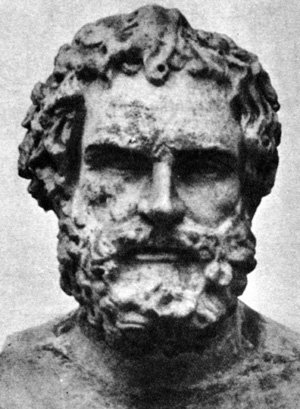
Anaximander (610 – 546 BC)
The demonism of the new concupiscential exodus does exhaust itself in conquest, however; it has the jurisdictional goal beyond conquest of what it calls transformation or “change” but what can only be experienced by those who do not elect it as annihilation in the mode of total undifferentiation. The point of view of the resistors is the true one: The mantra of “change,” so dear to the Left, is Newspeak (“disorder,” writes Guénon, “is nothing but change reduced to itself”); and the celebratory invocation by the Left of “difference” or “diversity” is likewise Newspeak. It requires only a smidgen of acuity to notice that the endless parade of “diverse people” who witness on behalf of “change” all say the same thing and tell the same stereotyped story; the “diversity” of the propagandists never exceeds the categories of skin-color, number of skin-piercings, peculiarity of dress, or deflected erotic interest because mentally they are all already completely assimilated to the narrow gnosis3 on the basis of which the regime claims its legitimacy. The succession of speakers in the lecture-calendar replicates in small the meaningless temporal succession of titled eminences in the ecumene. One might also notice that the ceaseless doctrinal self-justification of the modern rebellious elites resembles the soteriological propaganda of the ancient ecumenic campaigners; for in annihilating tradition the regime through its spokesmen claims to be engaging in a vast program of salvation or redemption. For twelve years they have been redeeming the place formerly called Bactria.
The difference between the “Saviors” of the Ecumenic Age and those of today consists in this: Whereas the men of the Alexandrian succession did not intend to wreck the societies that they left behind and whereas that wreckage came about as an unintended side effect of campaigning elsewhere (“backwash,” in modern jargon); the modern “Saviors” by distinction explicitly intend to wreck the societies from which they have treacherously defected. That is their main motivation. They say so unashamedly, over and over. They have captured education4 from the kindergartens to the doctoral programs and they train new cohorts every year to carry out the project of calling forth a new ecumene and perpetrating Ausratiertung on everything in it. To convince themselves and others that their toxic whimsies stand free of any ethical or practical limitation, they have developed a baroque anti-epistemology that they call, appropriately, Deconstruction, a nihilistic project that would obliterate logic itself and even knowledge. This makes the modern liberal obsession with “change” all the more pernicious since the modern liberal savior is really an annihilator. In Spiritual Authority, Guénon reminds his readers that, “Change would be impossible without a principle from which it proceeds and which, by the very fact that it is the principle of change, cannot itself be subject to change.” In a parallel comment, Guénon adds that, “Action, which belongs to the world of change, cannot have its principle in itself.” Yet the modern “Saviors,” through their “Action Committees,” invariably claim to be champions of principle. We all live in Bactria now and may not fire back.

Percy Bysshe Shelley, Bronze, 1882 by Amelia Robertson Hill (1820 -1904)
The Gnostic rebellion against reality denies limitations, but it is, of course, subordinate to them because it is subordinate to reality; the rebellion is moreover radically maladapted to reality (denying logic and repudiating knowledge are bad bets in the Darwinian game), such that it will eventually have to pay its “penalty” to Anaximander’s “Unlimited.” Or to Guénon’s “immutable … being.” Or, we might say, to God. When the rebellion will reach its limit, however, only God knows. The instruments of torture with which O’Brien threatens Smith in 1984 are old and rusty; the regime has been in place for a long time, dragging the whole of Anglo-Saxon humanity with it into the Big-Brother nightmare. In The Ecumenic Age, Voegelin has these wise words: “A ‘modern age’ in which the thinkers who ought to be philosophers prefer the role of imperial entrepreneurs will have to go through many convulsions before it has got rid of itself, together with the arrogance of its revolt, and found the way back to the dialogue of mankind with its humility.” Arrogance will leave deserted ruin in its wake. Shelley’s words from a famous poem seem appropriate: “Look on my works, ye mighty, and despair!”
II
Afterthoughts July 2016
Brexit
At last someone has fired back. The recent “Brexit” victory in Great Britain asks for interpretation in light of the Bactrian Episode. The European Union is, in itself, a recurrence of the historical pattern, of which the Revolt of the Kshatriyas gives a paradigmatic example, in Guénon’s presentation. The analogy is not difficult to see although it requires a modest and somewhat speculative historical rehearsal. Begin then with the changes in the European civilizational environment between 1900 and 1950. In 1900, Catholicism, Protestantism, and Greek Orthodox Christianity all exerted moral influence over the nations. The Papacy was a medieval institution linking Modern Europe with the Roman Empire; the dual-monarchy of Austria-Hungary was also a medieval institution that reflected the old idea of a Holy Roman Empire as the temporal reflection of a Christian political order in Europe. The German Empire was modern, dating only from 1870, and Protestant, but the longstanding regional polities that it had constitutionally absorbed retained their distinct cultural meanings. Bavarians and Thuringians, as well as Prussians, could understand themselves as upholding a Bavarian, Thuringian, or Prussian heritage even while participating, at a more abstract level, in the Kaiser’s Imperial project. The Hapsburgs had to make a similar concession to sustain their legitimacy, by granting equal partnership to Hungary although Hapsburg policy in its Slavic departments seems to have been ham-handed in comparison to Wilhelmine policy in the incorporated petty kingdoms and principalities. The German, Austrian, and Russian Empires were conservative or even reactionary: The attempt by republican France to export its revolution by force of arms to the whole of Europe remained central to the European historical awareness.

John Dos Passos (1896 – 1970)
The British Empire was a thing apart, being an overseas empire even in the case of Ireland. The Ottoman Empire of the Turks infringed on Europe in the Bosporus, but was otherwise a “Sick Man” whose dirty business was over there in Anatolia and the Near East, out of sight and largely out of mind. The unsuspected flaw in the balance of power whose devilishness no one foresaw was the system of treaties that would drag the continent into a bloody catastrophe. The details are well enough known that there is no need to reproduce them here.
Suffice it that the system of treaties operated as if it were a machine that no one could stop: It unleashed a war whose machine-like character subordinated the European tradition of armed conflict to a new and dehumanizing technological mandate. Classical battlefield leadership gave way to a new military dispensation governed by expertise in logistics and battlefront-engineering. The dreadnought battleship, the submarine, the tank, the warplane, and the new super-artillery signified this change in leadership, as icons, but the alteration in the ethics of bellicosity ran deep; and that alteration communed with a larger alteration of European civilization in the direction of bureaucratic technocracy. These events thus already constituted an upending of the centuries-old order of what used to refer to itself without irony as Christendom. Formerly, men fought wars; now, war would fight by itself, automatically, using men by the millions to actualize itself and realize its goals. The bureaucrats and technocrats who would facilitate war at the behest of war never thought of themselves as being subordinate to a superhuman process; rather they thought themselves in charge but of course they were deluded. All of the “War to End War” memoirists remark this fact. Thus Henri Barbusse, Robert Graves, Siegfried Sassoon, E. E. Cummings, and John Dos Passos take for granted the fatuousness of the Staff. In Dos Passos’ Three Soldiers5 a particularly profound insight occurs.
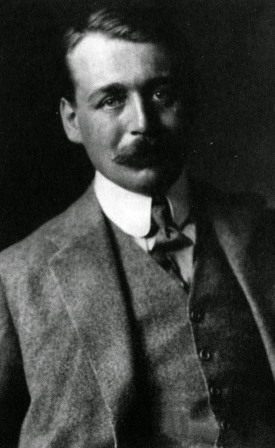
Colonel Sir Tatton Benvenuto Mark Sykes (1879 – 1919)
Three Soldiers concerns the destinies of a trio of American conscripts sent overseas in 1918 to help pull the Entente’s chestnuts out of the fire. Dos Passos foregrounds his discovery that modern war subordinates man by the ubiquity of the military police in at the front and in the rear. Military policemen hold vigil over the entire soldiery, seeking any hint of insubordination, either by word or by deed, to chastise and suppress it. In the form of “punishment squads,” for example, French military policemen man machinegun emplacements behind the assault, to deter any lack of enthusiasm among the infantry or to murder anyone who turns from the charge. Not les Boches – but les Françaises, le peuple plus civilisé du monde! But then France, not Germany, fell heir to the Revolution, with its innovation of the guillotine for dissenters. The military policemen and the warfare-engineer superiors for whom they work are together Guénon’s Kshatriyas. Although they are insanely convinced of their own righteousness and believe urgently that others are insubordinate to them, it is they, themselves, who represent insubordination. The French were the worst, but the other Allies were not much better. Theirs, however, is merely one phase in a larger, Twentieth-Century Revolt of Kshatriyas, in respect of which the “Brexit” victory, as suggested, may be read as a conscious, but terribly belated, re-reaction.
The next phase came with the cessation of combat, when the war, having fought itself automatically, came to its own temporary halt. (Actually, war went on in disintegrating Russia, just as it went on in the Balkans and Anatolia.) The bureaucrats and technocrats – the experts, let us call them – thought that they had begun the war, fought the war, and brought the war to its conclusion. Thinking thusly, they schemed to control the peace under the identical regime. The post-war agreements and treaties amounted to a supremely arrogant attempt to restructure the world according to expertise. The European empires had to go, except for the British and American Empires. The Turkish Empire had to go – although in the case of the Ottomans there is little room for nostalgia. The new nations and kingdoms were, as later events would prove, arbitrary and unstable impositions on traditional Europe. Most conspicuously, however, the “victorious powers” decided that they could whimsically redraw the map of the Levant and the Near East. Mister Mark Sykes and Monsieur François-Georges Picot famously conjured forth new nations, grabbing them as prizes, which would be under British or French “protection.” This enterprise implicated the same swatch of geography as Alexander’s conquests and the subsequent amoeboid pulsations of the Seleucid Kingdom in the span of its obscure centuries. Given the fact that British interest in India already extended into Afghanistan, the reproduction of the original ecumene is astonishingly complete. As Voegelin suggests, the elongated ovoid through which runs the axis from Pushkalavati to Jerusalem has the weird power to draw in the suicidal ambitions of concupiscent exodus.
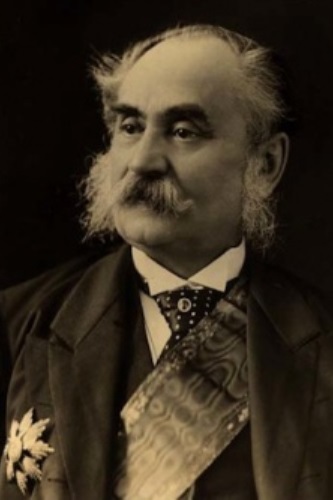
François Marie Denis Georges-Picot (1870 – 1951)
Is the Sykes-Picot agreement merely a historical curiosity? It is not. Reversing the effects of the Sykes-Picot agreement is today in 2016 an explicit intention of the Islamic State in Iraq and Syria.
With the illusory settlement of the conflict in the various treaties, the Age of Expertise begins in earnest. By no coincidence, the Age of Expertise is also the Age of Repudiation. The experts, who now control education, claim that traditional beliefs and conventions cause war, such that, to prevent war, the abolition of those beliefs and conventions is necessary. This great repudiation happens most dramatically in Russia, but Russia is merely the most acute manifestation of its presence. In the dénouement of Dos Passos’ Three Soldiers, the cathedral-spires of the French landscape are already foreign and mysterious to the “new” Frenchmen. Post-war Europe initiates no Stalinist program of blowing up its churches; it merely abandons them, as irrelevant. In Germany’s Weimar Period or in the USA’s “Roaring Twenties,” the prevailing ethos is disbelief and do-as-you-will, a codification, as it were, of the attitude of the soldier on leave, who expects not to live beyond his return to the trenches. The fatalistic moodiness never adds up to a doctrine, but it supplies the perverse soil of a pernicious doctrine, nihilism, which then furnishes the content of mandatory repudiation. Nihilism is to the spirit what an artillery barrage is to the physical plant or landscape at which the gunners aim their shells. We should remember the definition of the ecumene: A geographical space formerly giving soil to numerous local societies that, in the see-sawing campaigns of imperial aggression, has become a “graveyard of civilizations” (Voegelin) administered by imperial governors.
In the aftermath of “The War to End Wars,” The Eurasian Continent from Calais to Vladivostok had become the equivalent of an ecumene. The former Allies exerted harsh control over Germany and Central Europe while the Bolsheviks and “Whites” contended over the remains of the Russian Empire. The cessation of hostilities was, then, precisely illusory. Counting foreign wars conducted by colonial powers, Europe knew no peace from 1918 to 1939. Almost always, there was some petty conflict somewhere; and there was the greater conflict of the regime of universal expertise and efficiency against inherited, local custom. When war began again in earnest in 1939, as though men might not have prevented it, renewed destruction signified mainly that the inhuman process of making all aspects of Western Civilization subordinate to a global technical dispensation had entered its second overt, or actively destructive, phase. Dos Passos, who had experienced the “War to End Wars” at first hand as an ambulance driver on the Western Front, covered World War II in the Pacific as a battlefield correspondent.

Theodore Roosevelt (1858 – 1919)
In an essay called “Mr. Roosevelt’s Crusade” from 1945 later collected in the anthology The Theme Is Freedom,6 Dos Passos reports how, on Ulithi in the Caroline Islands Chain, he found that the atoll had been transformed into a great port for shipping, as big as New York Harbor or Liverpool. The transformation from a congeries of sleepy lagoons to an immense logistical center for resupplying General MacArthur’s island-hopping campaign in the Pacific had taken only a few months once the Americans got there. It was, in its way, a miracle of military-industrial organization. Something in it disquieted Dos Passos, however, even when he talked to the young naval officers in charge of transferring cargo from hundreds of Liberty ships to the battleships and aircraft carriers and discovered their enthusiastic devotion to the machine-like ceaselessness of their jobs. Having started his career as war correspondent by interviewing high-ranking officials of the Roosevelt administration in Washington DC, Dos Passos could see that the bureaucratic fanaticism of the Federal Government and this practical demonstration of supply-line war-fighting were two aspects of the same thing. Perhaps, thought Dos Passos, “a whole society formed like an army” was necessary for winning the existential fight against Nazism and Bushido. Nevertheless, he wrote, “When we got home we’d have to build liberty into the industrial scheme, or we’d be left with only the word.”
Dos Passos, who prefaces his essay with the remark that the biggest regret of his life was voting for Roosevelt’s second term in 1936, had come to conclusion by 1950 that although the United States of America had won their war against Japan – and, in Europe, against Germany – the victory represented no triumph of freedom. Rather, once the two enemies were defeated, the victorious power began to govern domestically as it had behaved externally during the war. President Eisenhower must have had similar suspicions, and was certainly in a position to confirm them, when he spoke, in his farewell address on leaving office in 1960, of a “military-industrial complex” that was slowly inveigling its way into all aspects of the national economy and into the lives of the American people. Contemporary conservatives and Traditionalists associate liberalism with what they (rightly) call social engineering. The term is invariably pejorative and judgmental. No one who values his own integrity or liberty wishes to be the object of social engineering. The intuition is a valid one, which Guénon, Voegelin, and Dos Passos, among others, validate by giving it a deeper explanation. Guénon understood the issue already in the 1920s. Voegelin and Dos Passos lived long enough to trace the ecumenization of the world into its self-denominating postmodern phase.

Dwight D. Eisenhower (1890 – 1969) as General of the US Army in 1947.
The continental United States became an ecumene, over which the federal bureaucracies have been extending their control since the Roosevelt administration, at the latest, if not long before. There is plenty of destruction in America in the form of blighted cities, strip-mall architecture, the obliteration of local communities, and the criminal enterprise of public education. Europe became an ecumene the control of which was contested between three powers, Germany, the Soviet Union, and the United States; the war destroyed Europe physically, and the subsequent regimes of social engineering destroyed it spiritually. The European Union, a technocratic dictatorship, arises out of those dual destructions, as their monstrous and toxic emanation. The European Union, like the Federal Government of the United States, is essentially remote. The European Union is remote even to Belgian citizens who must live in Brussels, just as the Federal Government of the United States is remote even to ordinary American citizens who, for one reason or another, must live in Washington DC. This remoteness, whether of the European Union or the American Federal Government, has nothing to do with space or distance; it has to do with the blatant arrogance and haughtiness – the Gnostic attitude – of the unelected bureaucrats who, taking office, sustain the program of universal politically correct Gleichschaltung, obliterating local cultures and societies by regulatory fiat in order, as they see it, to save disparate people from themselves by deleting and replacing them.
Deletion takes place through the outlawing of custom. A small but telling example is the replacement in Britain of English weights and measures by metric weights and volumes. A larger example is the imposition on the indigenous populations of Britain by irresponsible “policy-makers” of Third-World, largely Muslim, rent-seekers, who bring with them a fanatical intolerance of anyone and anything non-Muslim that is incompatible with Western arrangements – and who regard themselves as above the law. The coercive mixture of immiscible people, dissent from which is made illegal for indigenes, represents a deliberate policy to obliterate the ethnic character of actual societies by creating a type of lawlessness in which the foreigners only may claim identity and privilege. German Finance Minister Wolfgang Schäuble went so far as to say in an interview that Europe needed open borders to prevent its indigenous peoples from becoming “inbred.”7 Schäuble unavoidably implies that millions of European women should breed with the millions of male “refugees” that have flooded the continent in the last year. (The number of female “refugees” is vanishingly small.) The “refugees” have already endorsed this policy, as in Cologne on New Year’s Eve last or in Stockholm, regularly, for a decade.
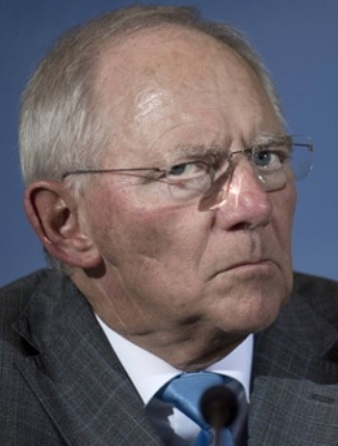
Wolfgang Schäuble, co-architect of Europe’s continent-wide anti-inbreeding programme.
In Schäuble’s callous and pornographic notion, replacement grows out of deletion. Young unmarried Muslim men make meet proxy-soldiers for political correctness, because they are willing to commit the violence and intimidation that the bureaucrats themselves will not undertake directly, and which they would rather the actual police not undertake either. Such things follow as the “expanding shell” of the bureaucratic Imperium brings formerly sovereign societies under its sway, as the majority of British voters have at last acknowledged by expressing their wish that Britain should leave the European Union. Britain even without the European Union remains a politically correct dystopia, of course, but in reclaiming sovereignty, the voting majority has potentially, at any rate, removed external support for the politically correct regime at home. Politically correct regimes see mere discussion, which they try to suppress, as threatening, but now, in Britain, many issues will necessarily come under discussion. What repels people in respect of the European Union will also repel them in respect of the dystopian arrangement in their own country, when at last it comes under discussion. Something similar appears to be happening in the United States in relation to Donald Trump’s trouncing of his Menshevik Party opposition: Trump’s nationalist candor terrifies the liberal establishment.
Those whose propose the annihilation of an entire culture should never govern, yet in the late Twentieth Century, the worst of them, dressed tidily in smart suits, touting their credentials, and voting themselves large salaries without consulting those who pay, have usurped the privilege of governance. These new elites inherited the powerful tools of social engineering devised by the logistics experts that war itself conscripted into its service in the first half of the Twentieth Century – in the two world wars that were, in fact, phases of the same war, and in the Cold War that followed. The liberal policies of multiculturalism, whose ultimate form is Schäuble’s vision of breeding, and of far-flung wars for the purpose of “nation-building” go together inseparably. They both belong to the pattern discerned complementarily by Guénon and Voegelin in their studies of the original ecumene over the possession of which contended the empires ancient and modern from that of the Persians to that of Alexander to that of Julian the Apostate to that of Justinian to those of Mohammed and his followers and finally to that of the European Empires including the American Empire. The saviors of mankind leave in their wake only the debris and offal of their demonism.

Donald Trump at the 2016 Republican Party Debate.
In The Ecumenic Age, Voegelin contrasts the ecumene with a geographical region, as given. Greeks of the Polis-World, Voegelin writes, could see the earth under the image of “an entity given once and for all as an object for exploration.” The ecumene, by contrast, is something that increases or decreases “correlative with the expansion or contraction of imperial power,” and which constitutes therefore only “an object of conquest.” One need not have read Voegelin, or Guénon for that matter, or even to have heard of him, or Guénon, to have the intuition that the tiresomeness of seeing one’s native place treated like “an object of conquest” is morally unendurable and must be brought to an end. The subjects of the intuition would like to have their own nations back, so as to explore and build on their own proper cultural inheritance without pestiferous interference from people who hate that cultural inheritance. No more than Alexander the Great’s troops at Susa do the subjects of the intuition want to breed, or rather be bred, under penalty, with culturally foreign others simply because someone with coercive power has the pornographic fantasy that, humiliatingly, they should. To be free from such mandates, all of which are pornographic in that they belong to the pornography of power, is perhaps the essence of freedom.
Those who, in responding to the intuition, vote to “go out,” whether they know it explicitly or not, vote also for the restoration of proper authority, which entails the wresting-back of political legitimacy from the pretenders who have usurped it and perverted it. To quote once again from Guénon’s Spiritual Authority: “Among almost all peoples and throughout diverse epochs – and with mounting frequency as we approach our times – the wielders of temporal power have tried… to free themselves of all superior authority, claiming to hold their power alone, and so to separate completely the spiritual from the temporal.” “Going out” thus means “going back,” which in turn means, “taking back” – that is, “taking back” the spirit of the local – the genius loci – from its globalist misappropriation hence also the forging of a renewed linkage of the temporal to the spiritual. The spiritual component of such a counter-revolutionary dispensation need not be a creed; it need not even be anything verbally explicit, but it must consist, in part at least, in a sense of identity rooted in historical continuity in a place. The Greek word ethos from which English derives many words having to do with custom and convention, originally meant a place. The West is beginning to understand that it wants its places back.
[Return to Part I]

Prof. Thomas Bertonneau
– Thomas F. Bertonneau is an American intellectual and professor. He has taught at a variety of institutions, and has been a member of the English Faculty at State University of New York, Oswego, since 2001. His articles and essays have appeared in a diverse array of scholarly journals including William Carlos Williams Review, Wallace Stevens Journal, Studies in American Jewish Literature, North Dakota Quarterly, Michigan Academician, Paroles Gelées: UCLA French Studies, and Profils Americains. He was a major contributor to the English section of The Brussels Journal. More recently, his work has appeared in The University Bookman, the John William Pope Center for Higher Education Policy as well as the websites The People of Shambhala and The Orthosphere. He has also contributed to the Symposia of the Sydney traditionalist Forum.
Endnotes:
- René Guénon, Spiritual Authority & Temporal Power (Sophie Perennis, 2001 [1929]).
- Eric Viegelin, Order and History Volume 4 The Ecumenic Age (University of Missouri Press, 2000 [1974]).
- “Knowledge. Originally a general term in Greek for knowledge of various sorts. Later, especially with the Gnostic movement of the early Christian era, a purported direct, immediate apprehension or vision of truth without the need for critical reflection; the special gift of a spiritual and cognitive elite. According to Voegelin, the claim to gnosis may take intellectual, emotional, and volitional forms.” – Eugene Webb, Eric Voegelin: Philosopher of History (University of Washington Press, 1981) p. 282. [The author takes this extract from the online version of the Dictionary of Voegelinian Terminology Jack Eliot (ed.) – SydneyTrads Editors]
- Thomas F. Bertonneau, “T. S. Eliot, Culture, and Higher Education, Part I” The Orthosphere (blog) (14 August 2014) <orthosphere.wordpress.com> (accessed 24 July 2016).
- John Dos Passos, Three Soldiers (Dover 2004 [1921]).
- John Don Passos, The Theme is Freedom (Ayer Co Pub, 1956).
- “Abschottung würde uns in Inzucht degenerieren lassen” Der Tagesspiegel (online) (8 June 2016 @ 3:39PM) <tagesspiegel.de> (accessed 24 July 2016); “German Miniter: Closerd Borders will Lead to Inbreeding” Breitbart (online) (9 June 2016) <breitbart.com/London> (accessed 24 July 2016).
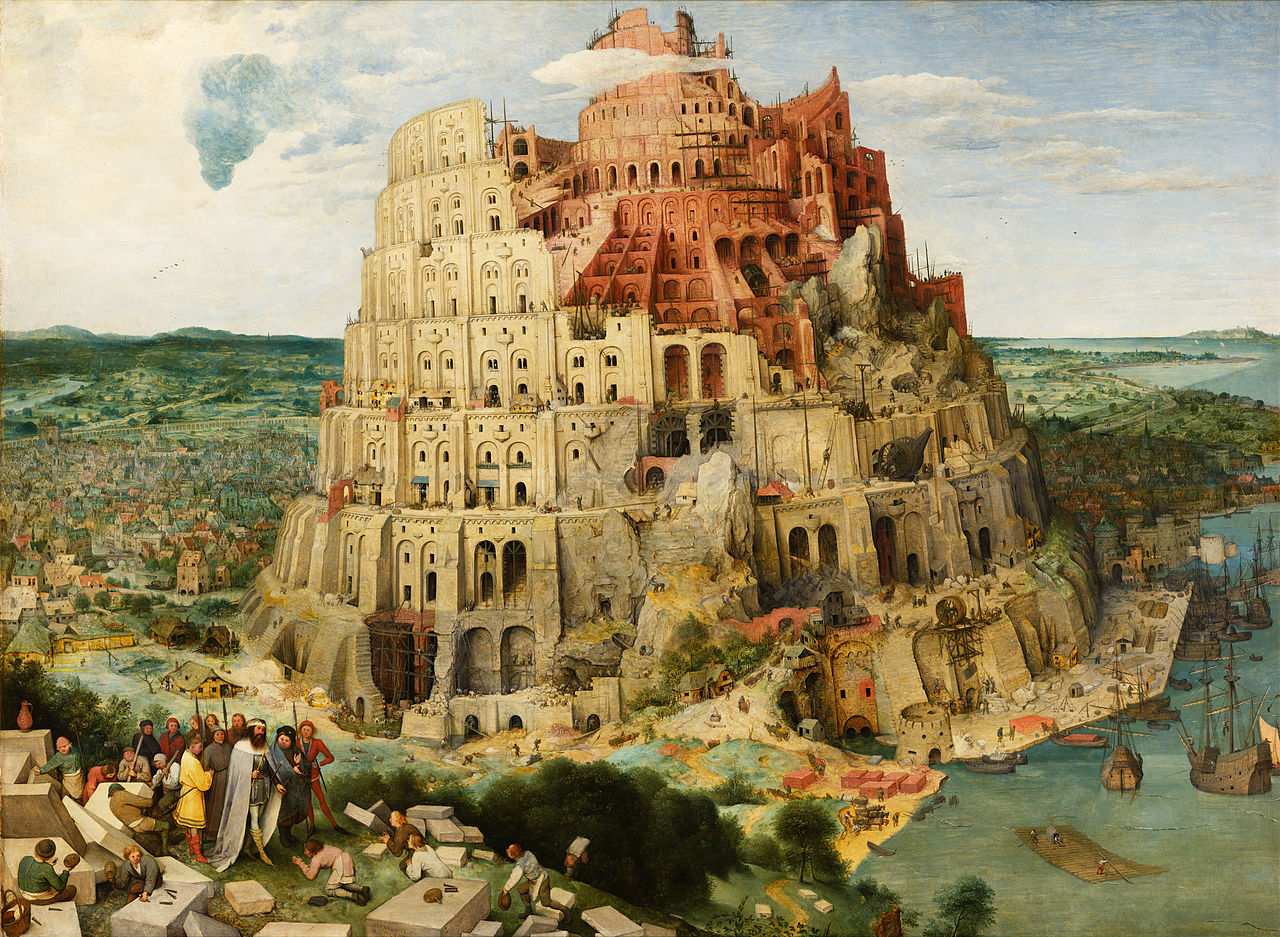
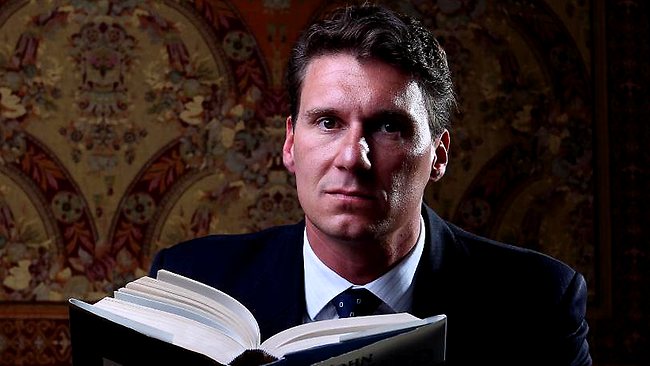
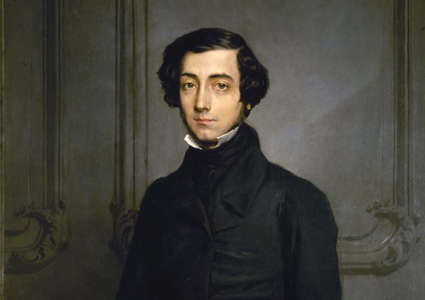


Reblogged this on deinvestiture.